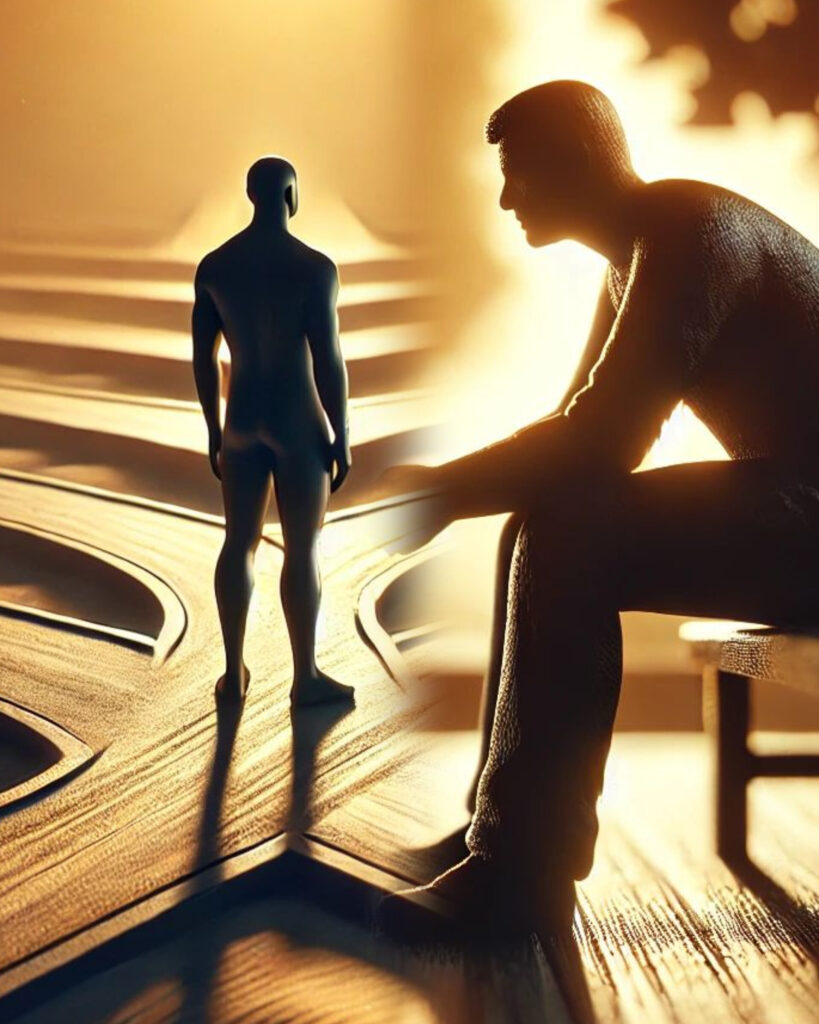
Masculinity Images
Introduction
In Part 1, we explored the tragic realities of men caught in toxic relationships and marriages—men who, feeling trapped and isolated, made irreversible decisions that ended in violence, suicide, or both. From Prof. Dubem Okafor’s heartbreaking murder-suicide in 2009 to Dr. Ikenna Erinne’s tragic death in January 2025, we saw how emotional distress, financial strain, and systemic biases can push men to the brink.
But these cases aren’t just isolated incidents; they reflect a larger crisis—men struggling in silence, lacking adequate support, and often breaking under the weight of societal expectations.
Part 2 shifts the focus from tragedy to solutions. If we recognize the pain, how do we prevent these all-too-familiar endings? Where can men turn for help before it’s too late?
Why Men Struggle to Seek Help
Despite the increasing awareness of mental health issues, many men still hesitate to seek help due to:
1. Societal Conditioning – From childhood, men are taught to be “strong,” to suppress emotions, and to handle struggles alone. Expressing vulnerability is often met with ridicule or dismissed as weakness.
2. Stigma Around Mental Health – Seeking therapy or counseling is still viewed as something for the “weak” or “mentally unstable,” rather than a proactive step toward well-being.
3. Lack of Tailored Resources – While there are countless support systems for women in abusive relationships, the same cannot be said for men. Many feel there is nowhere to turn, particularly in cases of emotional abuse, unfair legal battles, or financial distress.
4. Systemic Disadvantages in Family & Divorce Law – In many developed countries, men face biases in custody battles, child support rulings, and even domestic abuse claims. Many suffer financial devastation, loss of access to their children, and homelessness due to unfavorable legal structures.
These barriers leave men feeling trapped, hopeless, and often on the path to destructive outcomes. But there are alternatives.
- Legal & Financial Guidance
Many men spiral into crisis due to financial burdens from divorce, child support, or false accusations. It is crucial to seek early legal intervention:
• Men’s Rights Legal Groups: Organizations like Fathers 4 Justice (UK, US, Canada, Australia) or The National Parents Organization advocate for fair custody laws and help men navigate legal battles.
• Pro Bono & Low-Cost Legal Aid: Many bar associations offer free consultations for family law cases. Seeking legal help early can prevent devastating financial and emotional consequences.
• Financial Advisors Specializing in Divorce/Separation: Learning how to manage assets, negotiate settlements, and avoid legal pitfalls is crucial. - Mental Health & Crisis Support
Men dealing with emotional abuse, depression, or suicidal thoughts need spaces where they can talk without judgment.
• Men’s Therapy Groups & Hotlines:
• Movember Men’s Health Foundation (global)
• CALM (Campaign Against Living Miserably) – UK-based crisis support
• HeadsUpGuys – Mental health support for men
• Suicide prevention hotlines in respective countries (e.g., 988 in the US, Samaritans in the UK)
• Faith-Based & Community Counseling: Many religious and community centers offer discreet counseling services tailored to men’s struggles.
• Professional Therapy & Rehabilitation – Sometimes, true healing requires professional intervention.
I know this firsthand. After enduring immense personal struggles, I took time off to reset and rebuild. Engaging with various resources—especially countless hours of talk therapy—helped me piece myself back together.
My medical background allowed me to deeply explore mental health concepts, including Freud’s mapping of the mind through the id and ego.
But beyond the academic insights, therapy gave me the strength to face my reality and the courage to fight back. Without that experience, my story might have ended differently. I’ve documented much of this journey in my memoirs, but for this article, my message is simple: seeking help isn’t weakness—it’s survival.
- Cultural & Community-Based Support
For African and immigrant men in the diaspora, the absence of the traditional support system (“it takes a village”) makes crises harder to navigate. Rebuilding a strong support network is key.
• Men’s Mentorship & Brotherhood Networks – Groups like ManKind Initiative or Black Men Heal create spaces for men to connect, share experiences, and receive guidance.
• Elders & Trusted Mentors – Seeking advice from respected elders or role models can provide perspective, wisdom, and practical solutions.
• Support from Other Divorced/Separated Fathers – Connecting with men who have successfully navigated similar challenges can be life-changing.
How Society Can Do Better
Beyond individual efforts, society must acknowledge that men, too, suffer in toxic relationships and need real support. Key areas for change include:
1. Balanced Family & Divorce Laws – Courts must recognize that men deserve fair custody rights, reasonable child support expectations, and protection from false allegations.
2. Better Mental Health Awareness for Men – More campaigns should focus on men’s emotional struggles, not just their roles as providers.
3. More Men-Only Support Spaces – Just as there are countless women’s shelters, counseling centers, and domestic abuse support groups, we need safe spaces where men can seek help without fear of judgment.
Conclusion: It’s Time to Break the Silence
The tragedies of Prof. Dubem Okafor, Dr. Ikenna Ihim, and countless others could have been avoided if they had access to the right support. Men don’t need to suffer in silence.
If you or someone you know is struggling in a toxic relationship, facing an unfair legal battle, or dealing with emotional distress, seek help before it’s too late.
Change begins with awareness, and awareness leads to action. Let’s break the cycle.
Watch out for more conversations on this topic—because men’s pain matters, too.
Dr Femi Olaleye

Mr OLALEYE you’re trying to play victim in the crisis you created yourself from court records you pied lied throughly your teeth and your lawyers that you never went to any rehab for sex addiction it’s interesting to read here you admiting yourself and mentioning the Drs name and the clinic you checked yourself into .🤣 the first step to healing is accountability . You need to apologise to your readers first that you lied !!!! A person who refuses to be accountable does not have any business advocating . My 2 cents